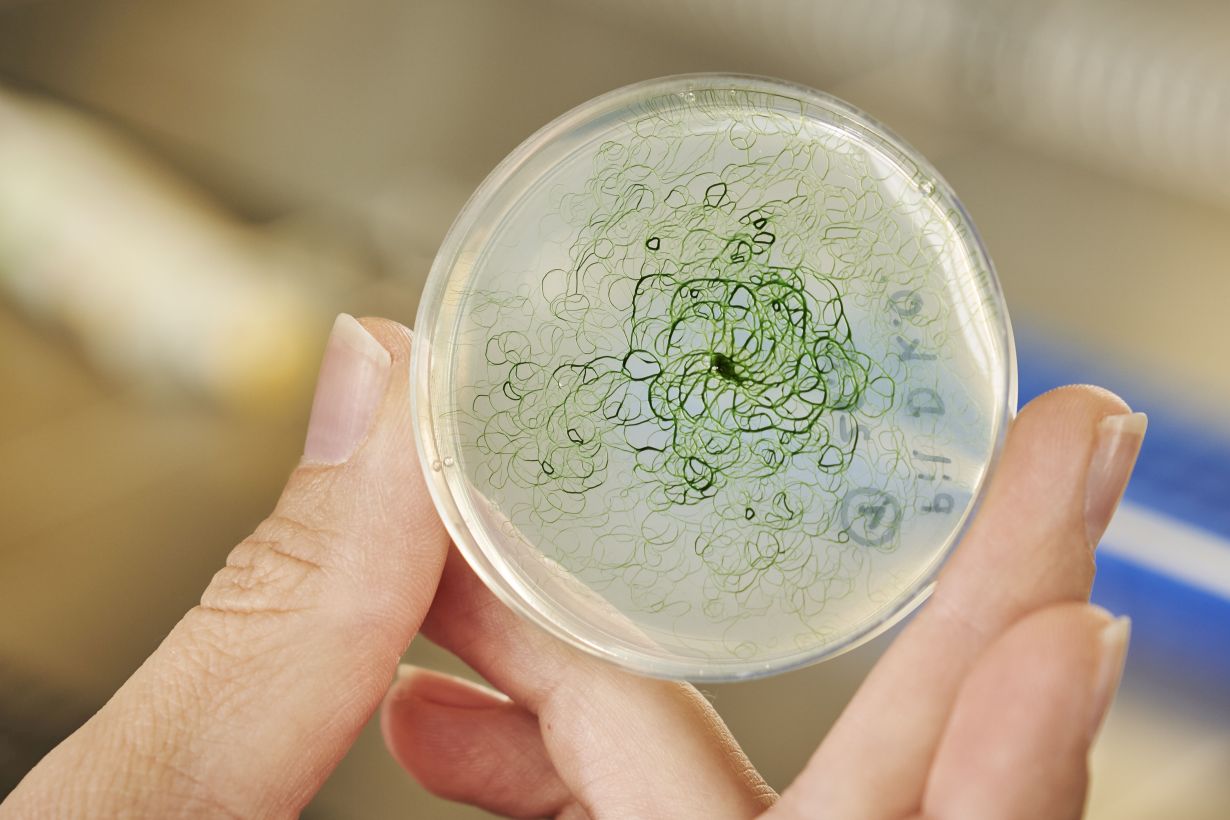Cyanobacteria hardly need any nutrients and use the energy of sunlight. Bathers are familiar with these microorganisms – often incorrectly called “blue-green algae” – as they often occur in waters. A group of researchers at the Karlsruhe Institute of Technology (KIT) has discovered that the multicellular species Phormidium lacuna can be genetically modified by natural transformation and could thus produce substances such as ethanol or hydrogen. They present their results in the online scientific journal PLOS ONE (DOI: 10.1371/journal.pone. 0234440).
During transformation, a cell is genetically modified by adding genetic material (DNA). This process, which occurs frequently in nature, can be used to introduce specific DNA into a cell and endow it with a certain property. “Natural transformation means that DNA is taken up by cells without any further aids,” says Professor Tilman Lamparter, professor at the Botanical Institute – General Botany research field at the KIT. The procedure is simple: It works without conjugation – the connection with another cell – and without electroperforation – which would make the cell wall permeable. Since natural transformation has so far only been successful in unicellular cyanobacteria, it was assumed that it was an exclusive feature of unicellular species. The findings of the KIT research group show that the natural competence to take up extracellular DNA occurs more frequently in cyanobacteria than previously thought. In the online scientific publication PLOS ONE (Public Library of Science), they report for the first time on gene transfer for the Phormidium lacuna genus and on the natural transformation of a multicellular, filamentous cyanobacterium.

Contribution to Bio-Economy: Replacing Fossil Resources
For natural transformation, the cells must be in a physiological state, known as natural competence, so that the recipient cell can actively transport DNA into the cytoplasm. The scientists took advantage of the natural transformation and integrated new genetic information into the genome of Phormidium lacuna. The multicellular cyanobacteria, which obtain their energy from sunlight, offer the advantage of forming a biofilm and of growing in a high cell density that can be quickly removed. KIT scientists isolated several strains of this filamentously growing species from the North Sea and the Mediterranean Sea and sequenced the genome of one strain.
The technique established by the researchers to modify multicellular cyanobacteria by introducing genetic information opens up a wide range of possibilities for basic research and possible applications. “With the help of natural transformation, we have already created numerous so-called knockout mutants, i.e. we succeeded in switching off certain genes and thus identified their function,” says Lamparter. A possible future-oriented application would be to synthesize ethanol, hydrogen or lactate as well as other bioproducts in the cells and thus contribute to the bio-economy and to the change from an oil-based economy to a market economy based on sustainable resources. “Our vision is to use this technology to replace fossil resources,” says the biologist.
Original publication:
Nies F, Mielke M, Pochert J, Lamparter T (2020) Natural transformation of the filamentous cyanobacterium Phormidium lacuna. PLoS ONE 15(6): e0234440. https://doi.org/10.1371/journal.pone.0234440
Being “The University in the Helmholtz Association”, KIT creates and imparts knowledge for the society and the environment. It is the objective to make significant contributions to the global challenges in the fields of energy, mobility, and information. For this, about 10,000 employees cooperate in a broad range of disciplines in natural sciences, engineering sciences, economics, and the humanities and social sciences. KIT prepares its 22,800 students for responsible tasks in society, industry, and science by offering research-based study programs. Innovation efforts at KIT build a bridge between important scientific findings and their application for the benefit of society, economic prosperity, and the preservation of our natural basis of life. KIT is one of the German universities of excellence.

